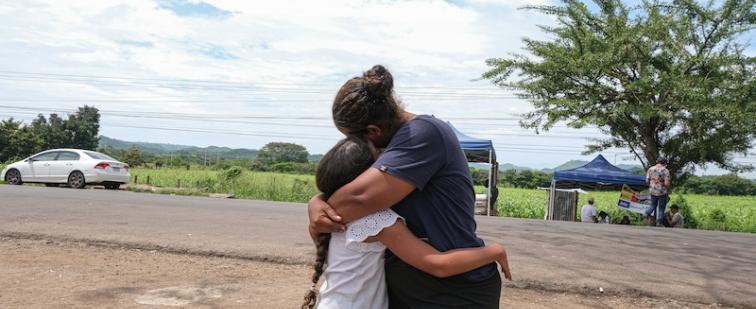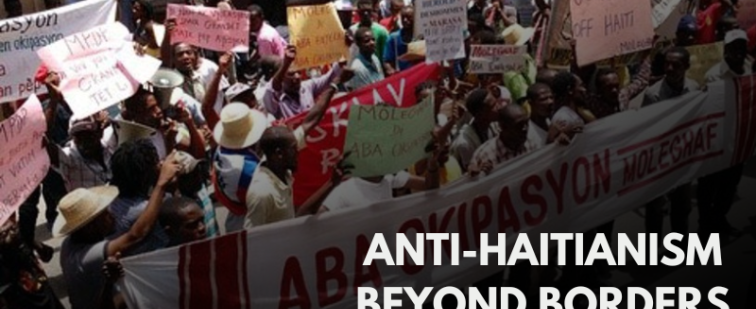Home
In this photo essay, small-scale farmers in the Paraguayan departments of Alto Paraná and San Pedro face off over land with industrial soy. Large-scale Paraguayan landowners have, with government collusion, displaced thousands of families in the last decade for their sprawling soy plantations.
The mainstream press in the United States will often simply ignore Bolivia, while the little U.S. media coverage the Andean nation does receive is deeply flawed and distorted. The media depicts the government of Evo Morales as having dubious political legitimacy, dismissing his electoral victories as little more than the entrenchment of political polarization in the country. Media coverage of opposition-led violence is also systematically distorted or completely ignored.
At May Day protests one hundred years ago today, Argentine police slaughtered 30 workers who were demanding an eight-hour work day and commemorating Chicago's Hay Market massacre. The repression deeply affected a young anarchist named Simón Radowitzky and unleashed a chain of events that would convert the young man into one of Latin America's most famous internationalists. For the next 100 years, Radowitzky's memory has helped fuel militant worker actions.
The Venezuelan opposition faced a difficult question in February, as the country prepared to vote in a national referendum on abolishing term limits. Would participating in the vote mean conceding an institutional victory to the government of President Hugo Chávez? This was a burning question for the fractious Venezuelan right, whose past anti-electoral tactics—a coup in 2002, an oil strike in 2002–03, a boycott of parliamentary elections in 2005—have only backfired.
As the end of all U.S. travel restrictions to Cuba seems imminent, it is clearer than ever that a progressive opposition to U.S. Cuba policy needs to focus on ending the entirety of the embargo. Otherwise, momentum for U.S. Cuba policy reform will be co-opted by representatives of the tourism, agricultural and telecommunication industries. And an influx of U.S. tourists with the embargo still in place could mean more hardships for average Cubans and other problems on the island.
A media-fueled specter of drug-war spillover from Mexico is stalking the U.S. border region. A closer examination of these issues casts doubt on the connection being made between Mexican cartel violence and crime in the southwest, leading some officials to dismiss the spillover claim. But that's not stopping anti-immigration forces and militarized border agencies from crying that the sky is falling.
 |
A U.S. delegation of international electoral accompaniers reports back from their observance of the February term limits referendum in Venezuela. They found the election was held with uniform professionalism and care, and that the election results were tallied quickly. Their observations of Venezuelan popular democracy in action stand in marked contrast with media depictions of Venezuela’s government as autocratic. NACLA, TransAfrica Forum, Urban Semillas, and Diverse Strategies Organizing compiled the report.
The mainstream media erupted with stories about Venezuelan President Hugo Chávez publicly giving President Obama a Spanish-language copy of Eduardo Galeano's Open Veins of Latin America during the Summit of the Americas in Trinidad - but for all of the coverage, the media isn't telling the truth about this important book's message.
In response to the just-concluded 5th Summit of the Americas held in Trinidad and Tobago, the member countries of the Bolivarian Alternative for the Americas (ALBA) – Bolivia, Cuba, Dominica, Honduras, Nicaragua and Venezuela – released a counter-declaration. The document denounces the declaration of its mainstream counterpart for ignoring the global economic crisis and excluding Cuba among many other grievances.
With all that happened at the Summit of the Americas, it was easy to miss a significant about-face by the Obama administration. No, it wasn't the administration's supposedly softer stance toward Cuba. Nor was it Venezuela's well-received offer (by Chávez-basher Hillary Clinton no less) to re-exchange ambassadors with Washington. Obama won't read the Spanish edition of The Open Veins of Latin America, a gift from Chávez, so that can be dismissed, too.












